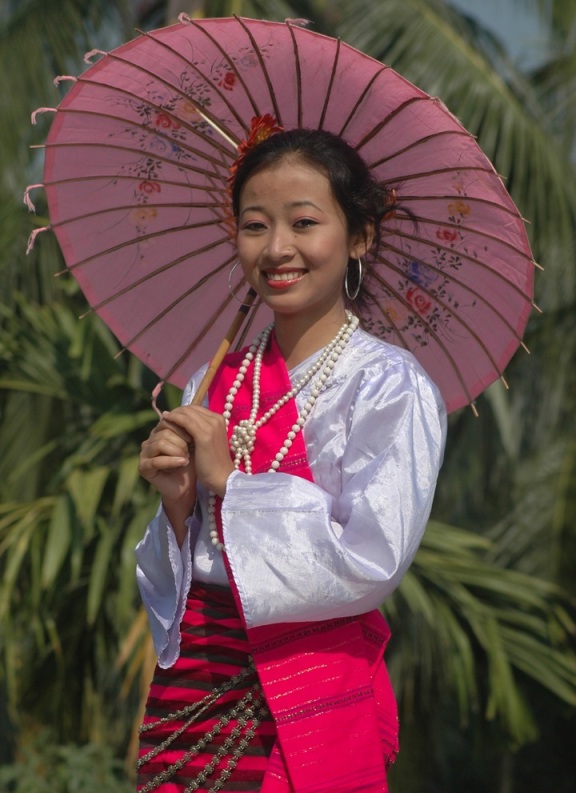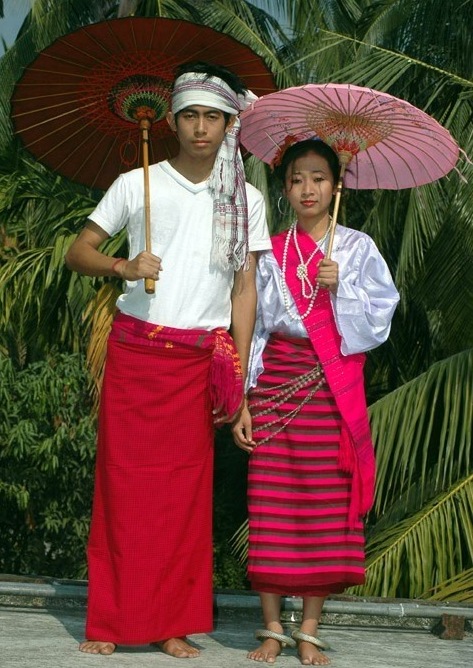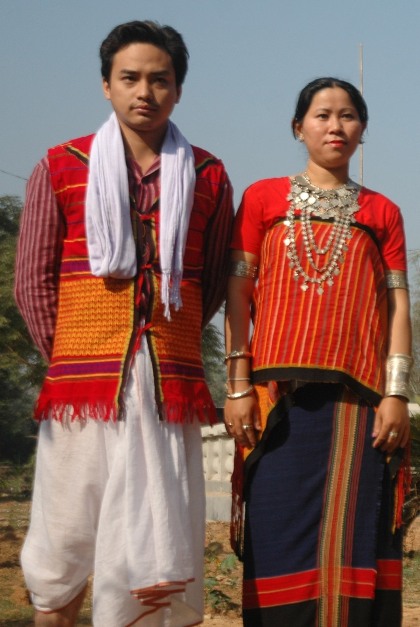Mog
Chakma
Kukis
Darlong
 The Mogs are indigenous community of Tripura. They
constitute sixth largest indigenous people of Tripura. The Mogs had a dynasty in
Arakan, situated in present Myanmar. They had been mentioned in the royal
chronicle of Tripura, the Rajmala. There were instances and records of wars
between the Arakan king and Tripura kings. They were fierce fighter, and the
Mogs was inducted in the Tripura royal forces, there were many soldiers
belonging to Mogs community in the past. It is presumed that the Mogs started
settling in Tripura since then, almost 5-6 centuries. The Mogs are indigenous community of Tripura. They
constitute sixth largest indigenous people of Tripura. The Mogs had a dynasty in
Arakan, situated in present Myanmar. They had been mentioned in the royal
chronicle of Tripura, the Rajmala. There were instances and records of wars
between the Arakan king and Tripura kings. They were fierce fighter, and the
Mogs was inducted in the Tripura royal forces, there were many soldiers
belonging to Mogs community in the past. It is presumed that the Mogs started
settling in Tripura since then, almost 5-6 centuries.
The Mogs are basically agriculturist, but now a
day they are found to take profession of every modern discipline, from clerk,
teacher, officer, doctor, engineer and politicians. They are generally free from
any inter communal or intra communal class distinctions. It seems one may reach
the top positions in the community by economic solvency or circumstantial
factors. As a community the Mogs are very disciplined, self reliant, and peace
loving and meek. Maintainances of internal discipline are the distinct
responsibility of the head man who in the pas used to lend helping to the king
of Tripura by maintaining peace within the community. The Mogs are Buddhist by
religion and do not have linking for any form of religion. Though, they have
some traditional festivals exclusively followed by Mogs not by any other section
of Buddhist.
 The Mogs women are very industrious, courageous,
strong stout, and active like other indigenous people of Tripura. They look
after most of the house hold affair, and take care of children and bringing them
up. They love to wear colourful dress, gorgeous ornaments, and fascinated to
wear flowers. The Mogs women are very industrious, courageous,
strong stout, and active like other indigenous people of Tripura. They look
after most of the house hold affair, and take care of children and bringing them
up. They love to wear colourful dress, gorgeous ornaments, and fascinated to
wear flowers.
The Mogs have an organization, which is linked
with international Buddhist association. The organization is also running a
residential school, enrolled with CBSE, in English medium. It has now classes up
to 7th standard, and has plan to upgrade up to college level. They
have their own website:
www.bhet.org
|
|
 The
original home land of Chakma is in the Chitagang hill Tract which is presently
in Bangladesh. They are Indo-mongoloid indigenous tribes, who have been
marginalized in their home land be cause of communal conflict. The Chakmas are
very hard working and industrious, originally their occupation was mainly jhum
or shifting cultivation, but had shifted to plain land cultivation for more than
centuries. Now a days Chakmas are also not far behind from any other race. They
are found to profess in almost all the profession modern times. They are
physically little bit shorted than other indo mongoloids. The Chakma practices
Buddhism, along with worships their original god and goddess, traditional
customs and rituals. Biju is their new year festivals which is celebrated around
15 April every year. Their mother tongue was originally indo-mongoloid but it
has been replaced with now Indo-aryan languages. They have their own scripts. The
original home land of Chakma is in the Chitagang hill Tract which is presently
in Bangladesh. They are Indo-mongoloid indigenous tribes, who have been
marginalized in their home land be cause of communal conflict. The Chakmas are
very hard working and industrious, originally their occupation was mainly jhum
or shifting cultivation, but had shifted to plain land cultivation for more than
centuries. Now a days Chakmas are also not far behind from any other race. They
are found to profess in almost all the profession modern times. They are
physically little bit shorted than other indo mongoloids. The Chakma practices
Buddhism, along with worships their original god and goddess, traditional
customs and rituals. Biju is their new year festivals which is celebrated around
15 April every year. Their mother tongue was originally indo-mongoloid but it
has been replaced with now Indo-aryan languages. They have their own scripts.
They have
been forced to migrate to the safe places in many parts of India because of
oppression by non-secular government of Bangladesh. There have been many
instances of oppression in recent times. As a result they had been resettled to
many parts of India like Mizoram, Tripura, Arunachal Preadesh, and West Bengal.
This Webpage is being updated! |